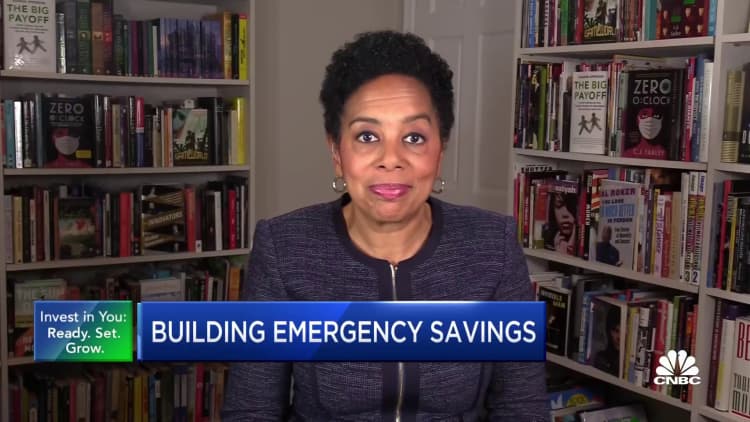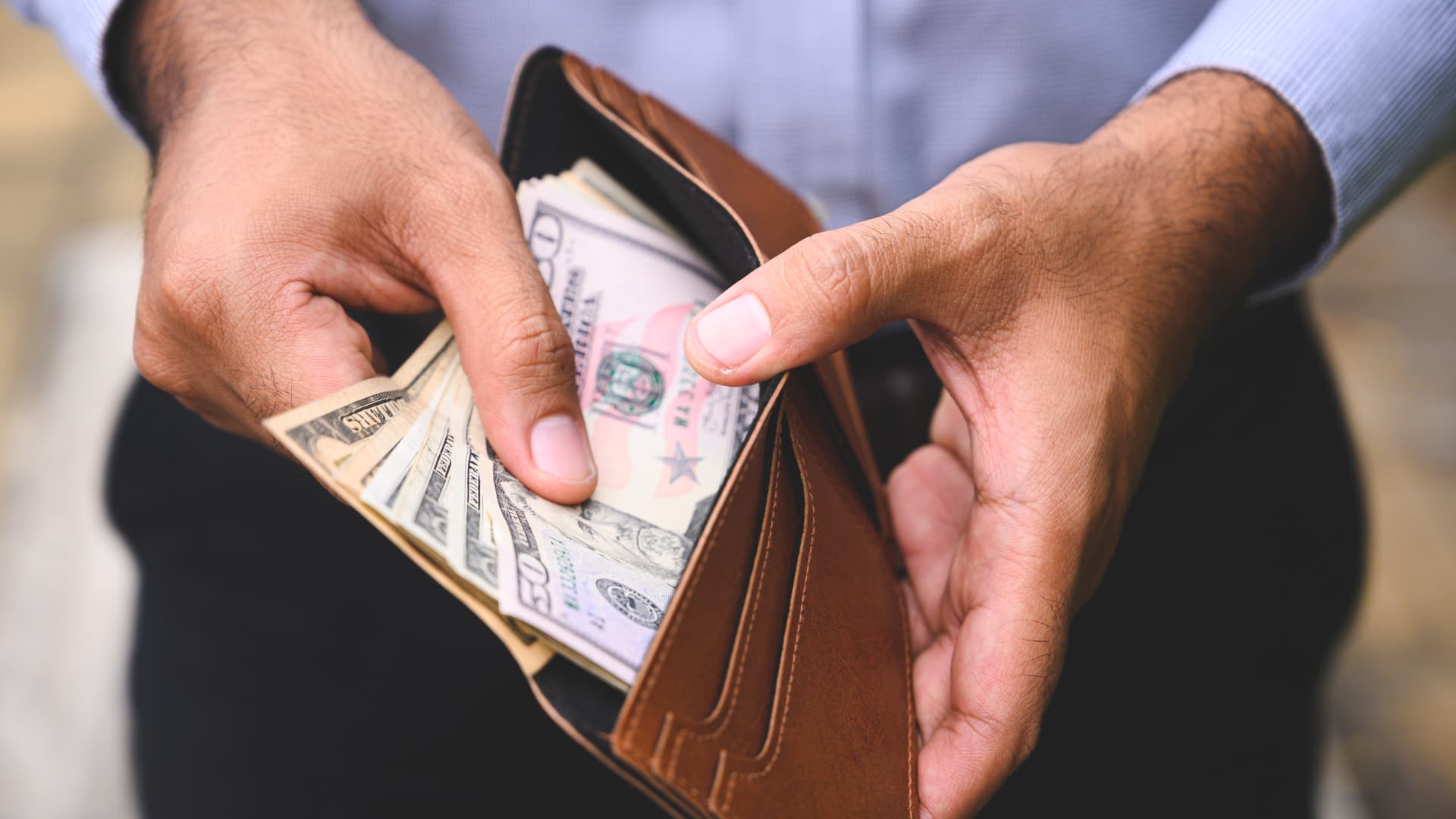Nopphon Pattanasri | Istock | Getty Images
Investors have been able to get better cash returns as the Federal Reserve raised interest rates to lower the pace of inflation.
Now that the central bank is cutting rates — with a new quarterly rate cut announced by the Fed on Thursday — experts say holding cash can still be a competitive strategy.
“The best returns, whether we’re looking at high-yield savings accounts, money markets or CDs [certificates of deposit] are well ahead of inflation, and that’s likely to continue for a while,” said Greg McBride, chief financial analyst at Bankrate.
“Prices are coming down, but money is still a pretty good place to be,” he said.
However, how much money to set aside is a question that each individual investor must determine.
Earlier this year, Callie Cox, chief market strategist at Ritholtz Wealth Management, warned that investors could be holding too much cash. That may still be true today, she said Thursday.
“If you’re sitting on cash because the environment doesn’t feel right, then that’s probably not a good reason to sit on cash,” Cox said.
Strive for at least a six-month emergency fund
Most financial advisors recommend putting cash aside so that unexpected expenses don’t blow your budget or send you racking up credit card debt.
“The rule of thumb is six months of really necessary expenses,” said Natalie Colley, a certified financial planner and partner and senior advisor at Francis Financial in New York.
However, having a year’s worth of expenses set aside can also be reasonable, depending on your family’s budget, she said.
If your savings aren’t yet at that six-month or one-year mark, start with a goal of putting aside three months’ worth of expenses and then keep building your money, Colley said.
If you’ve fallen behind on your emergency savings, you’re not alone.
Nearly two-thirds — 62% — of Americans feel behind on emergency savings, a September Bankrate survey found. For many individuals, inflation and overspending have made it harder to find the money to put aside.

Pay attention to asset allocation
Savers may be at risk of missing out on today’s higher rates if they haven’t moved their savings to a high-yield online savings account or another account that pays a more competitive yield.
However, even if they are accessing those higher interest rates for cash, investors can still lose out.
Whether or not that’s true for investors depends on a person’s time horizon, experts say.
For long-term goals, stocks pay the best returns on your money and can best help ensure you have the money you need at the right times.
“Stocks move higher over time,” Cox said. “If you let your emotions get in the way, you could miss a rally that’s crucial to meeting your financial goals.”
More from Personal Finance:
What the Federal Reserve’s Latest Rate Cut Means for Your Money
Is ‘vibecession’ here to stay? Here’s what the experts say
Parents aren’t sure they can teach their kids to invest
If you have money set aside that you want to put into the market, it might make sense to add a fixed portion of that money over time, say every month — a strategy called dollar cost averaging, Colley said.
Having that fixed schedule can help you avoid trying to time the market, which can be difficult to do effectively, she said. Importantly, investors should try to choose broadly diversified funds rather than individual stocks.
Taking a long-term view can pay off.
If you had invested all your money before the financial crisis, it would have felt like the worst time in the whole world, Colley said.
Now, your returns look great, provided you let that money grow over a 15-year period, she said.
Review your money strategy as conditions change
To be sure, there are risks that investors should keep track of when it comes to their money and other investments.
“Prices will come down more slowly than they went up — much more slowly,” McBride said.
Consequently, cash investors can enjoy returns that have the potential to outpace inflation for longer, he said.
However, there are risks for savers to watch.
Policies put in place under the incoming presidential administration could affect both inflation and interest rates, Cox said.
“If inflation picks up, it can be difficult to earn a potential cash yield,” Cox said.
In that case, stocks may offer a better way to beat inflation, though there are no guarantees of potential returns, she said.
Whether investors choose cash or stocks, they should ask themselves why they are making those choices and what they need that money for, she said.
